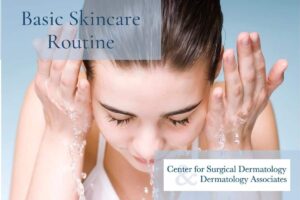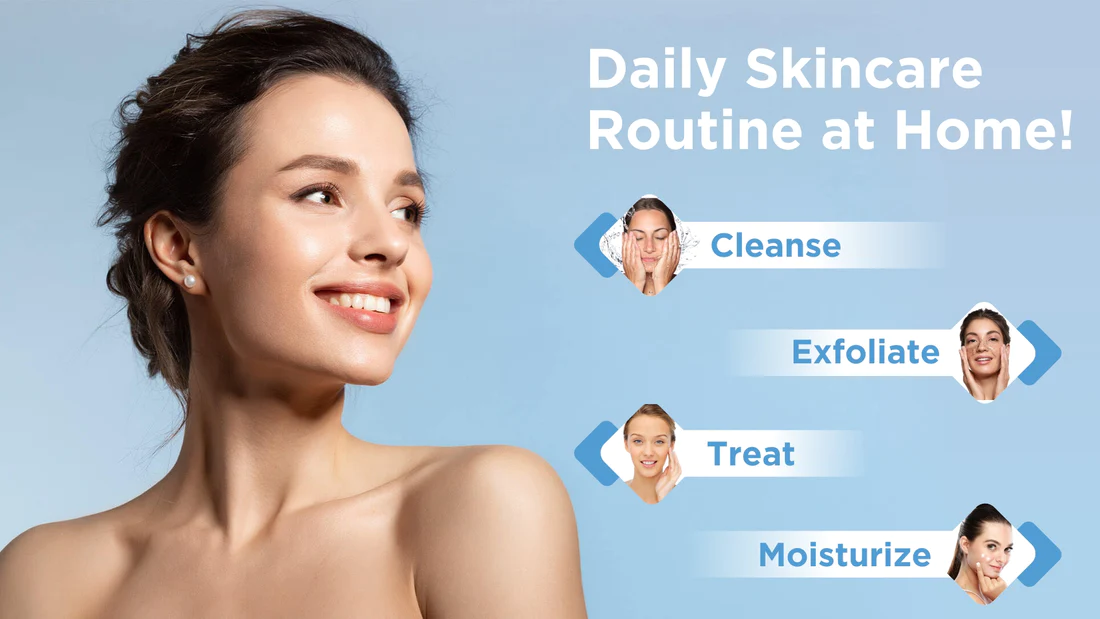Welcome to our blog post on the essentials of a simple and effective skincare routine! Whether you’re a newcomer to the world of skincare or a seasoned enthusiast, this post will provide valuable insights and tips to help you achieve healthy, radiant skin. So, grab a cup of tea, sit back, and let’s dive in!

Cleansing: The Foundation of Great Skin
Cleansing is the first and most crucial step in any skincare routine. It helps remove dirt, oil, and impurities that accumulate on our skin throughout the day. To find the right cleanser for your skin type, consider factors such as whether you have dry, oily, or sensitive skin.
For dry skin, opt for gentle, hydrating cleansers that won’t strip away natural oils. If you have oily skin, look for oil-free and purifying cleansers to help control excess sebum. And if you have sensitive skin, choose mild, fragrance-free cleansers that won’t cause irritation.
Exfoliation: Unveiling Fresh, Glowing Skin
Exfoliation is like a mini spa session for your skin. It removes dead skin cells, unclogs pores, and reveals fresh, glowing skin underneath. However, it’s important to strike a balance here. Over-exfoliating can lead to irritation and dryness, while under-exfoliating can leave your skin looking dull.
For a simple and effective exfoliation routine, aim to exfoliate two to three times a week. Choose a gentle exfoliator with fine particles or chemical exfoliators containing ingredients like glycolic or lactic acid. Exfoliate in gentle circular motions, focusing on areas prone to blackheads or dry patches.

Hydration: Nourish and Quench Your Skin
Hydration is the holy grail of skincare. It helps replenish moisture, improve skin elasticity, and prevent dryness. To keep your skin hydrated, invest in a quality moisturizer that suits your skin type.
For dry skin, opt for heavier creams or hydrating oils that provide deep nourishment. If you have oily or combination skin, choose lightweight, oil-free moisturizers that won’t clog your pores. And if you have sensitive skin, look for moisturizers with soothing ingredients like aloe vera or chamomile.
Sun Protection: Shield Your Skin from Harmful UV Rays
Sun protection is not just a summertime requirement; it’s a year-round necessity. Exposure to the sun’s harmful UV rays can lead to premature aging, sunspots, and even skin cancer. Protecting your skin from the sun should be a vital part of your skincare routine.
Invest in a broad-spectrum sunscreen with an SPF of at least 30. Apply it generously to all exposed areas of your skin, even on cloudy days or when indoors. Remember to reapply every two hours, and wear protective clothing, hats, and sunglasses for additional sun protection.
Additional Tips and Tricks for a Flawless Complexion
While the basics mentioned above cover the essentials of a simple and effective skincare routine, there are a few additional tips and tricks you can incorporate to take your routine to the next level:
- Stay hydrated: Remember to drink plenty of water throughout the day to keep your skin hydrated from within.
- Eat a balanced diet: Incorporate fruits, vegetables, and foods rich in antioxidants into your diet for a radiant complexion.
- Get quality sleep: A good night’s sleep allows your skin to repair and rejuvenate, so aim for at least seven to eight hours of restful sleep.
- Manage stress levels: High stress can impact your skin’s health. Find healthy ways to manage stress, such as exercise, meditation, or indulging in hobbies you love.
In Conclusion
Achieving and maintaining healthy, radiant skin begins with a simple and effective skincare routine. Remember to cleanse, exfoliate, hydrate, and protect your skin daily. Alongside these essentials, don’t forget to incorporate healthy lifestyle habits. By doing so, you’ll be well on your way to achieving a flawless complexion. Here’s to happy and healthy skin!
Please note that while the information provided in this blog post is thoroughly researched, it is not intended to replace professional medical advice. If you have specific skincare concerns or conditions, it is advisable to consult with a dermatologist.





One Response
great post